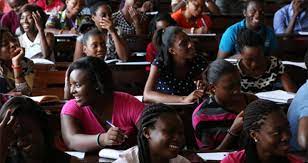de l’Enseignement Superieur Professionnel Oriente Insertion et Reussite des jeunes (Vocational higher education project for the integration and success of young people (ESPOIR-Jeunes).
The World Bank has approved $150 million in funding to improve the capacity of Senegal’s higher education institutions to adapt the skills they teach to the needs of the job market.
“This support is for the ESPOIR-Jeunes Project. It is designed to improve the economic performance of higher education graduates, in line with the objectives of promoting inclusive growth, shared
prosperity and gender equality in Senegal,” the World Bank writes on its website.
“We are confident that this project will achieve its objectives, building on the already satisfactory results achieved by the Institut Superieur deEtudes Professionnels (Higher Institution of Vocational Studies, ISEP) in the city of Thies, financed by the World Bank. This funding will enable the creation of eight other institutions in regions targeted by the Senegalese government. The appropriate and relevant vocational skills they offer will enable beneficiaries to be rapidly integrated into the job market. This project is expected to have a positive impact with, in the short term, the enrolment of over 16,000 students as the first cohorts in the newly created ISEPs,” said Keiko Miwa, World Bank Operations Director for Cape, The Gambia, Guinea-Bissau, Mauritania and Senegal.
The eight new ISEPs will be built in regions with different profiles according to their socio-economic needs.
Pamela Mulet, Education Specialist and Team Leader of the ESPOIR-Jeunes project at the World Bank, explained that these new ISEPs will take into account the intrinsic potential of each region’s
geographical zones, from mining trades to those linked to fruit growing, or even the processing of fish products, not forgetting the textile industry. “The aim, he says, “is to meet local professional demand.”
TE/fss/as/APA
|
ReplyForward
|


